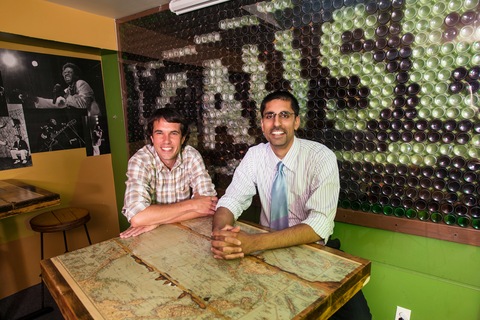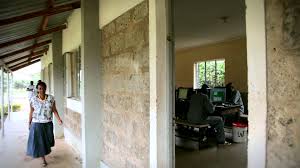Government Grants
Business Grants
Home Owner Programs
Federal Programs
About Us
Immersive Employment Readiness Training for Justice-Involved Individuals
Employment is known to be among the leading factors in successfully reducing recidivism among justice-involved individuals, both in the community and carceral settings.
Employment directs individuals toward pro-social activities and provides them with the means to support their families, abstain from crime, and contribute economically to their community.
Workforce training and certification help individuals gather the knowledge and technical skills they need to become employed.
Training in soft skills, like critical thinking, cooperation, empathy, and problem solving, give individuals the competencies they will need to maintain employment after it is secured.
Immersive virtual learning strategies are increasingly being used to teach soft skills.
When combined with other teaching methods, immersive learning can improve knowledge retention and give learners a low-risk virtual environment in which to practice real-world skills.
Beyond the virtual classroom, which is facilitated through Web-based remote meeting platforms like WebEx and Zoom, there are virtual 2-dimensional (2D) and 3- dimensional (3D) gaming and social environments that encompass the world of virtual and augmented reality.
Organizations of many types are using these tools to provide job training for students and new and existing employees.
Career resource centers like Goodwill Industries International, whose mission includes helping individuals find and secure employment, are successfully using immersive learning technologies like virtual reality to provide soft skills training to job seekers.
The National Institute of Corrections (NIC) promotes job training for justice-involved individuals through its Workforce Development and Correctional Industries training programs, which are specially designed to meet the training needs of correctional staff.
These programs provide practitioners with employment resources and help them successfully apply cognitive behavioral therapies and interventions to various situations with justice-involved individuals.
Cognitive behavioral therapies and interventions have been used, for example, to help individuals repair distorted beliefs about the world and learn critical thinking and problem-solving skills.
These are the same skills that justice-involved individuals need to help them maintain employment.
In combination with other training methods, practitioners can use immersive learning to facilitate the learning of a variety of job-related skills.
In contrast to traditional media, like radio, television, and film, immersive learning can mimic the full experience of being in a workplace setting.
Learners can practice using skills in a virtual environment where making mistakes has none of the permanent consequences that can lead to job loss in the real world.
Employment directs individuals toward pro-social activities and provides them with the means to support their families, abstain from crime, and contribute economically to their community.
Workforce training and certification help individuals gather the knowledge and technical skills they need to become employed.
Training in soft skills, like critical thinking, cooperation, empathy, and problem solving, give individuals the competencies they will need to maintain employment after it is secured.
Immersive virtual learning strategies are increasingly being used to teach soft skills.
When combined with other teaching methods, immersive learning can improve knowledge retention and give learners a low-risk virtual environment in which to practice real-world skills.
Beyond the virtual classroom, which is facilitated through Web-based remote meeting platforms like WebEx and Zoom, there are virtual 2-dimensional (2D) and 3- dimensional (3D) gaming and social environments that encompass the world of virtual and augmented reality.
Organizations of many types are using these tools to provide job training for students and new and existing employees.
Career resource centers like Goodwill Industries International, whose mission includes helping individuals find and secure employment, are successfully using immersive learning technologies like virtual reality to provide soft skills training to job seekers.
The National Institute of Corrections (NIC) promotes job training for justice-involved individuals through its Workforce Development and Correctional Industries training programs, which are specially designed to meet the training needs of correctional staff.
These programs provide practitioners with employment resources and help them successfully apply cognitive behavioral therapies and interventions to various situations with justice-involved individuals.
Cognitive behavioral therapies and interventions have been used, for example, to help individuals repair distorted beliefs about the world and learn critical thinking and problem-solving skills.
These are the same skills that justice-involved individuals need to help them maintain employment.
In combination with other training methods, practitioners can use immersive learning to facilitate the learning of a variety of job-related skills.
In contrast to traditional media, like radio, television, and film, immersive learning can mimic the full experience of being in a workplace setting.
Learners can practice using skills in a virtual environment where making mistakes has none of the permanent consequences that can lead to job loss in the real world.
Obtain Full Opportunity Text:
NIC Website
Additional Information of Eligibility:
NIC invites applications from nonprofit organizations (including faith-based, community, and tribal organizations), for-profit organizations (including tribal for-profit organizations), and institutions of higher education (including tribal institutions of higher education).
Recipients, including for-profit organizations, must agree to waive any profit or fee for services.
Foreign governments, international organizations, and non-governmental international organizations/institutions are not eligible to apply.
Proof of 501(c) (3) status as determined by the Internal Revenue Service or an authorizing tribal resolution is required.
NIC welcomes applications that involve two or more entities; however, one eligible entity must be the applicant and the others must be proposed as subrecipients.
The applicant must be the entity with primary responsibility for administering the funding and managing the entire program.
Only one (1) application will be accepted from a submitting organization.
Full Opportunity Web Address:
https://mygrants.servicenowservices.com/grants?id=grants_funding_opportunity&table=u_domestic_funding_opportunity&sys_id=f006876f1b97291048dbed3ce54bcb0c&view=Default
Contact:
Agency Email Description:
Form and Application information
Agency Email:
Date Posted:
2023-06-15
Application Due Date:
Archive Date:
2023-08-30
Social Entrepreneurship
Spotlight
Philanthropub: Not Your Typical Noshery

Restaurateurs Nick Vilelle and Raj Ratwani are owners of the CAUSE gastropub, which includes a fresh menu, lively atmosphere, graffiti-inspired artwork, and a hefty beer list.

